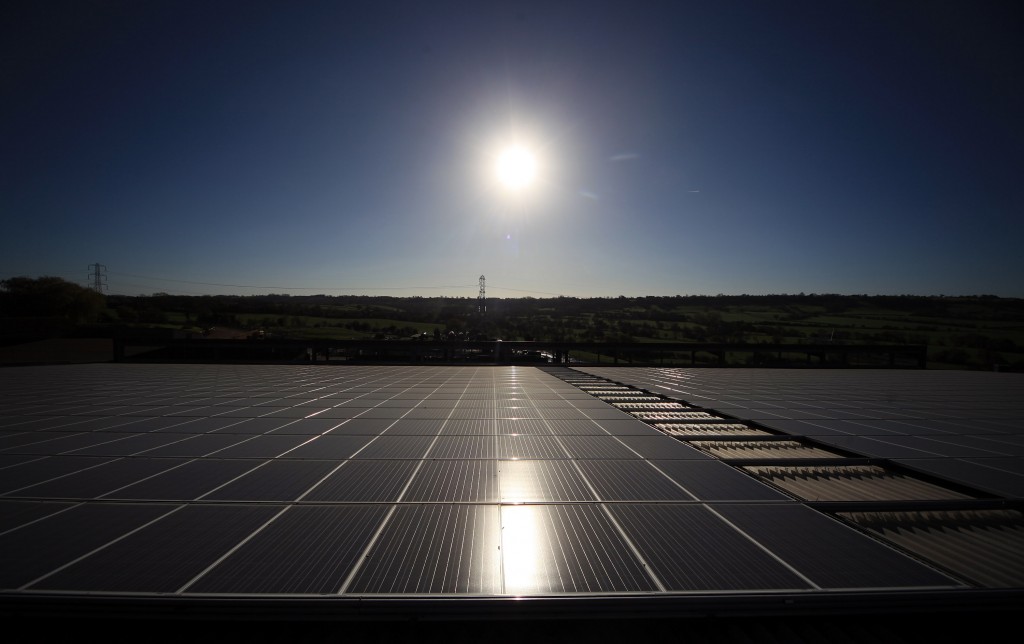Good energy policy ideas can come from all corners, and Wall Street is no exception. Goldman Sachs recently served up a powerful case for action on methane in a stroke of market logic grounded in data. In a recent report, the investment bank argues that environmental regulation is more than a necessary evil when it comes… Keep reading →
Goldman Sachs
Goldman Sachs Supports Methane Policy, and Why it Matters
By Environmental Defense Fund Energy Exchange BlogSign up and get Breaking Energy news in your inbox.
We will never sell or share your information without your consent. See our privacy policy.Financial Sector Focuses on Risks from Methane
By Environmental Defense Fund Energy Exchange BlogEnvironmental concerns about methane emissions continue to grow as more people understand the negative climate implications of this incredibly potent greenhouse gas. Now the financial community is taking note of not only the environmental risks but the impact of methane emissions on the oil and gas industry’s bottom line. Methane leaks not only pollute the atmosphere, but… Keep reading →
Energy News Roundup: Tense Iraq Situation, Exxon-Anadarko Takeover Rumors & Goldman Chief Talks Energy
By Jared AndersonThe situation on the ground in Iraq is sketchy, with conflicting reports about the extent to which the Islamic State in Iraq and the Levant has advanced and how much territory now controlled by the group. The Sunni Al Qaeda splinter group reportedly took control of the northern city of Mosul and overran the Turkish… Keep reading →
Energy News Roundup: Banks, Commodities, Putin’s Energetic Confidence and Oil by Rail Regulations
By Jared AndersonSome banks are sticking it out in commodities as several others exit the business amid onerous regulations and decreasing profitability. The banks that stick around – including Goldman Sachs – face less competition. [Bloomberg] Putin feels emboldened by the fact that major western oil companies remain committed to Russia despite the current souring of relations… Keep reading →
Majority government-owned Danish utility Dong Energy recently brought in new investors that included two Danish pension funds and US investment bank Goldman Sachs. The Danish public strongly opposed Goldman’s involvement due to several aspects of the deal’s structure and the degree of control Goldman would receive with its 19% equity stake in the company. This… Keep reading →
The death of the traditional utility business model has been highly exaggerated, to butcher the Mark Twain quote. But that doesn’t mean change won’t happen, and when it does, those companies with a strong ‘ecosystem of innovation’ will be faster to pivot and more likely to survive. The drumbeat of warnings has grown louder that… Keep reading →
One of the most frightening scenes from the financial crisis unfolded in the staid environs of the Commodity Futures Trading Commission’s Washington offices, where the regulators charged with monitoring derivatives trade gathered together the heads of commodity trading from recently shamed Wall Street giants like Goldman Sachs and Morgan Stanley. The CFTC was a comparatively… Keep reading →

Analysts mostly agree that Chesapeake Energy received a relatively low price for the Mississippi Lime acreage it agreed to sell to China’s Sinopec for $1.02 billion. What is less clear though, is whether the price Chesapeake received reflects the company’s position as a distressed seller, or the quality of the assets sold. The Mississippi Lime is a shale play extending from northern Oklahoma into central Kansas.
“From my perspective, the proceeds looked a bit light on a per acre basis as well as per barrel of oil equivalent on a proved reserve basis,” Phil Weiss, Senior Analyst covering energy for Argus Research recently told Breaking Energy in an email. Keep reading →
Richard Kauffman had a rapt audience at the AGRION Energy and Sustainability Summit in New York City as he opened the event with a largely off-the-cuff speech. He is a man known in the industry for handing out (and making) serious sums of money in energy, and has just been handed one of the highest profile, but least understood, new positions in the New York state government. Keep reading →

Banks, trading houses and corporations trading energy and related commodities are bracing for one of the most visible financial reform efforts of the last century to finally take effect next month, and are observing the initial impacts on the first sector to be impacted: credit and interest rates.
Rules written by the Commodity Futures Trading Commission since the passage of the Dodd-Frank financial reform legislation require all registered “swap dealers” to register their trades with centralized swap data repositories. The first stage of required reporting kicked in on the final day of 2012 for the notionally huge but comparatively tidy credit and interest rate markets, and is scheduled to start for the equally enormous but potentially more varied and heterogeneous commodity and energy trading markets in February (alongside foreign exchange and equity swaps). Keep reading →







